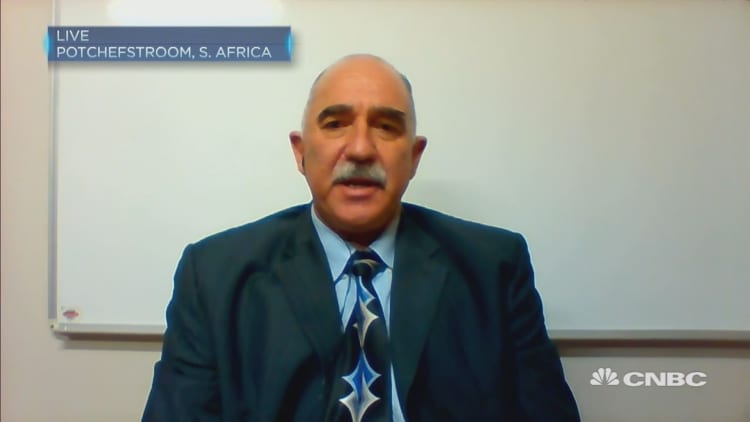South Africa's largest trade union went on strike Wednesday, threatening to "shut down the country" as it protested against corruption in the ruling African National Congress (ANC) party.
The Congress of South African Trade Unions (COSATU) mobilized strike action nationwide, including in the capital Pretoria and economic hub Johannesburg. The strike has been backed by a number of groups including independent organization Business Leadership South Africa.
"Workers (are) ready and willing to fight the immoral and criminal phenomenon of state capture and the cancer of corruption," COSATU wrote in a statement published on its website September 21.
"Our intention is to shut down the country tomorrow, but we are going to do so without the use of force. You can't fight corruption with corruption," COSATU spokesperson Sizwe Pamla told the Huffington Post South Africa Tuesday.
South Africa's economic woes continue to rumble along. In April, its sovereign rating was downgraded to junk by ratings agencies Fitch and S&P Global, moves largely attributed to political upheaval in the country. According to Statistics South Africa, unemployment for the second quarter of 2017 was 27.7 percent – though in its statement COSATU places the real unemployment rate at 38 percent.
Despite this, the country did scramble its way out of its second recession in a decade earlier in September, with second quarter growth for 2017 falling at 2.5 percent.
According to COSATU's statement, South Africa is losing roughly R147 billion ($10.9 billion) illegally taken out of the country each year.

While Wednesday's strike is "part of a succession of protests against (President Jacob) Zuma," it is "much more formalized" than previous action, Chris Vandome, research analyst with the Africa program at think tank Chatham House told CNBC.
According to a survey by consultancy firm Kantar TNS, support in urban areas for Zuma dropped to 20 percent in March. Vandome added that "the strike is already on the side of public opinion."
Gary van Staden, political analyst at South Africa-based firm NKC African Economics, wrote in a note: "The demonstrations are widely regarded as a referendum on (Zuma's) leadership and, more to the point, his succession."
Zuma is not expected to run for president in the country's next general election in 2019. COSATU and other organized labor supports Deputy President Cyril Ramaphosa rather than the Zuma-backed candidate Nkosazana Dlamini-Zuma, who is also his former wife.
Corruption in South Africa most recently made headlines earlier in September, as financial services firm KPMG withdrew its top tier management due to misdoings with the Gupta brothers, businessmen closely linked to the president.
"In South Africa there is the realization of the enormous social and political problems they face, and can't fix overnight," Vandome said. People are reinforcing their "expectation for the government to act equitably, with no queue-jumpers," he added.

